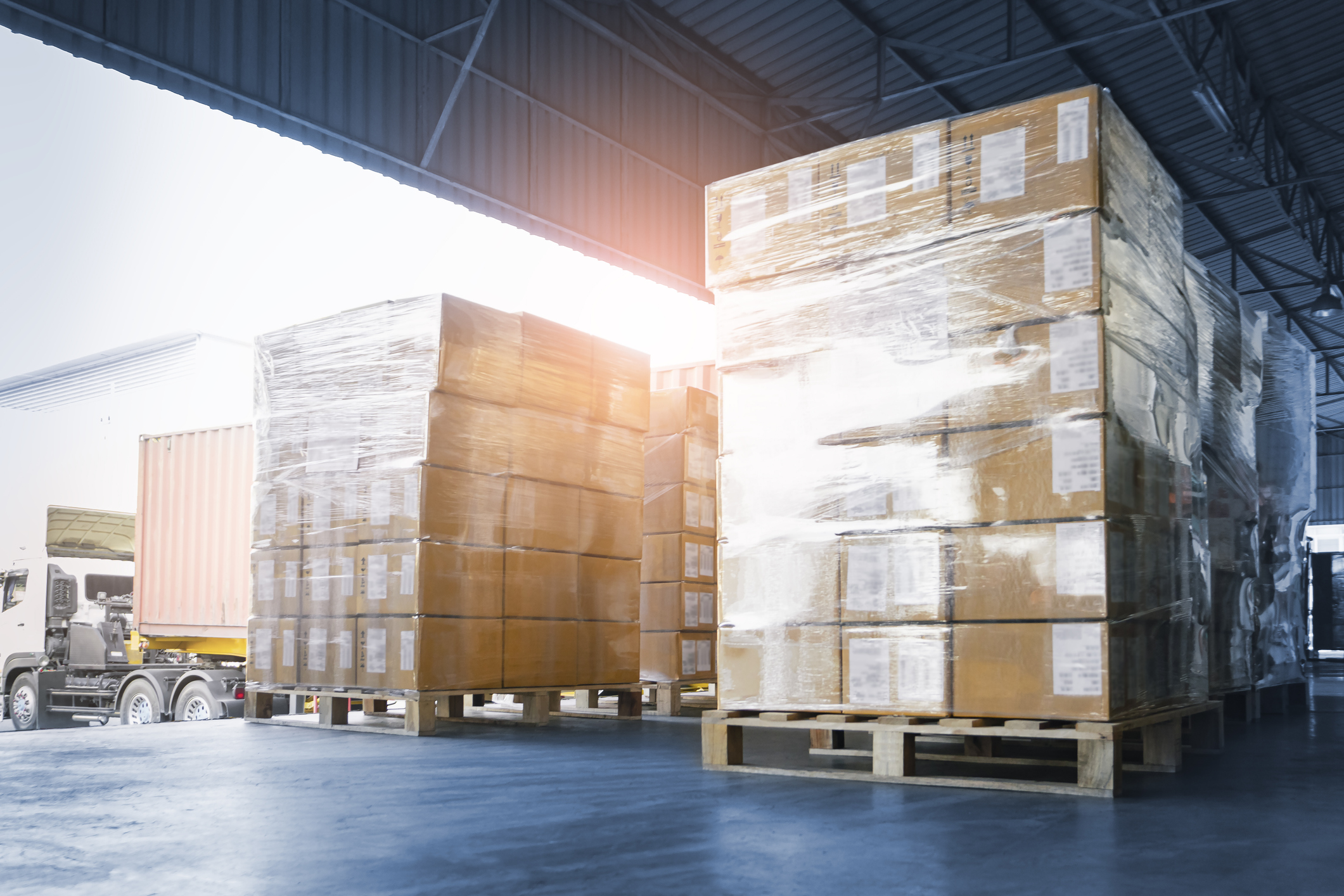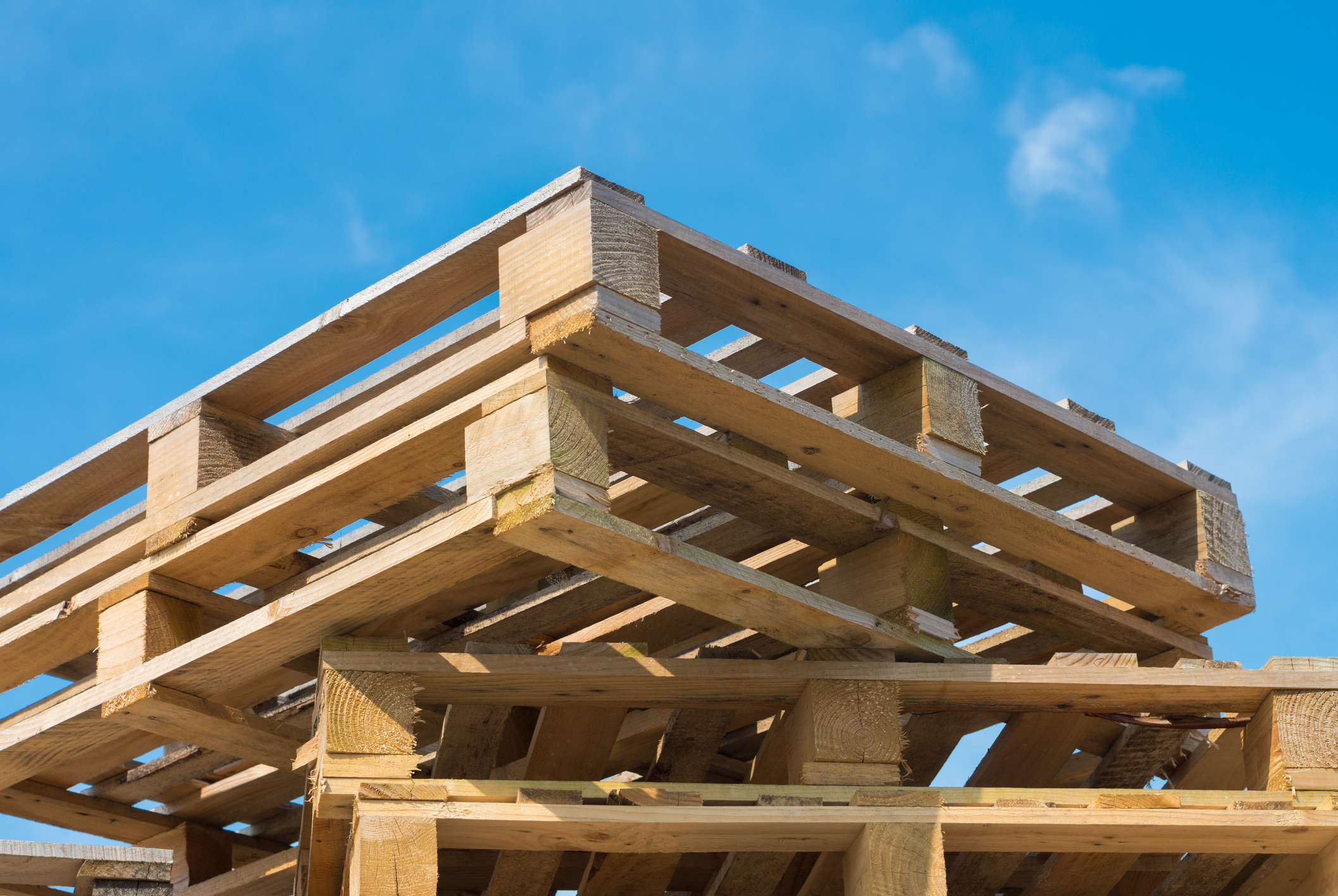Shipping wooden pallets may seem like a simple task, but have you ever wondered how the pallets you’re sending are treated? You’ll find that not all pallets are created equal, and getting your pallets correctly treated is really important.
If a pallet isn’t treated it could be denied transport into a country and destroyed, or it could be unsafe for your recipient.
So, where should you begin when it comes to understanding how your pallets are treated? See our guide to find out everything you need to know about pallet treatment.
And if you need easy pallet shipping across the UK and Europe, you can trust National Pallets to deliver! Get a quote today to see how much you can save.
What is Pallet Treatment?

Pallet treatment is all about making sure wooden pallets are bug-free and good to go for international shipping without any issue.
This involves cleaning a pallet with chemicals or heat to remove any insects or plants that may be attached to the pallet. This keeps invasive species from entering other countries and keeps your pallets as clean as possible.
Why Treat Your Pallets?
Before we look at how to tell if a pallet is treated, let’s look at why it’s so important.
There are a few reasons you want to make sure you’re using treated pallets when shipping both internationally and domestically.
Shipping Pallets to the EU Post-Brexit
After leaving the EU in 2021, the UK is no longer exempt from ISPM 15 regulations that monitor wooden pallets and aim to stop the spread of invasive bugs and diseases.
All pallets leaving and entering the UK must meet the following criteria:
- Wood packaging material must be made of debarked wood.
- Pallets must be either heat treated or fumigated with pesticides.
- Pallets must be clearly marked with a mark of compliance. This includes the IPPC certification and 2 letter code to show the type of treatment applied to the pallet.
Any pallets may be checked when entering a country to make sure it meets the ISPM 15 requirements. Pallets that don’t meet regulation could be denied transport into the country or even destroyed!
Pallet Safety
A cleaner pallet is a safer pallet - and safety is key! Whether it’s your customer or in a warehouse, you want to make sure that anyone handling your pallets is well protected. Pallets that are left untreated have the possibility to have plants and bugs attached to them, and the excess moisture overtime could decrease the durability of your pallet entirely.
How to Tell if Pallet Wood is Treated

Checking whether a pallet has been treated is easy once you know what to look out for. You should start by learning the specific markings, stamps, and visual cues that indicate what level of treatment, if any, your pallet has been through.
IPPC Stamped Pallets
If a pallet is being shipped outside the UK it must have an IPPC (International Plant Protection Convention) stamp which is confirmation that the pallet is safe. There’ll then be some letters next to this stamp which specify the type of treatment your pallet has gone through.
You’ll often find that more than one treatment marking will be on your pallet. This just means your pallet has gone through multiple cleaning processes!
Debarked Pallets
The first type of pallet you should know about is debarked pallets which are marked by the letters ‘DB’ on your pallet. You’ll find that most pallets are made from debarked wood which basically means that the bark of the tree has been removed from all parts of the pallet.
This is done as a first step to pallet treatment and ensures all other forms of pallet cleaning can be directly applied to the wood of the pallet without any bark getting in the way.
Heat Treated Pallets
A heat treated pallet is a type of pallet that has been heated to a minimum of 56°C for at least 30 minutes. This helps to eliminate pests and enhance durability and makes the pallet suitable for international shipping in accordance with ISPM 15 regulations.
When looking at your pallet, you’ll know if it has been heat treated if you see a ‘HT’ mark somewhere on the wood. This is typically in the corners of the pallet, but make sure you check everywhere as sometimes it can be hidden or faded!
Kiln Dried Pallets
Similarly to heat treated pallets, a kiln dried treatment involves the wood being put through heat chambers for a period of time. But the goal here is to reduce the moisture of the pallet, as well as getting rid of pests and plants attached to the pallet. Pallets would be stacked inside large heating chambers (Kilns) and then slowly heated until all excess moisture is evaporated.
This type of treatment is marked by the letters ‘KD’ on your pallet. But this is often paired with ‘HT’ to show that not only is your pallet free of moisture, it’s also free from invasive species and can be shipped internationally!
Fumigated Pallets
Some other treatments involve fumigating the pallets with chemicals such as Methyl Bromide (MB) or Sulphuryl Fluoride (SF). This is done as sometimes invasive species on the pallet can withstand the heat and still survive so pesticides are used to completely remove all bugs and plants.
But be careful when handling these pallets as they can be toxic when inhaling the fumes. You should avoid using these pallets for personal use or in fires, as they could cause further harm. So make sure you check the pallet for the letters MB or SF.
What if My Pallet Doesn’t Have a Marking?
If your pallet doesn’t have any markings, don’t panic! Just because a pallet hasn’t gone through specific treatment, it doesn’t mean it’s not useful.
These pallets are often referred to as ‘national pallets’. This means these pallets are used for transport within their country and therefore don’t require any specific cleaning to meet regulations.
But that doesn’t mean you shouldn’t look after these pallets. It’s always good practice to make sure your pallets are as clean and safe as possible to make sure they’re hygienic to handle and last longer.

